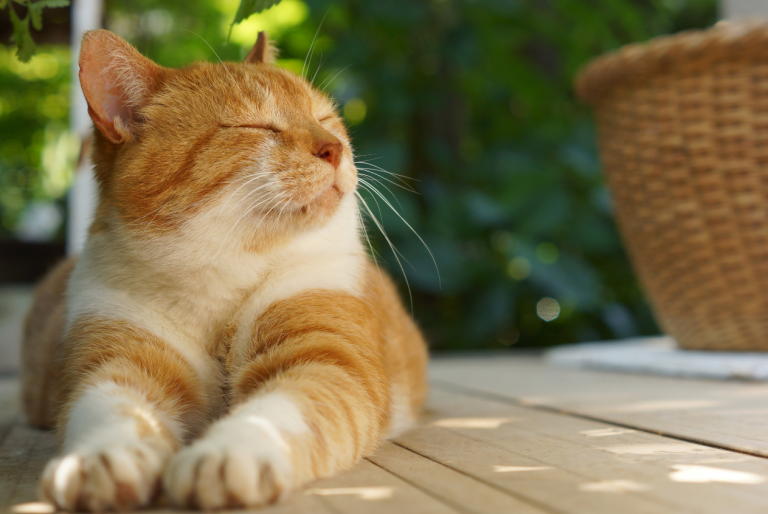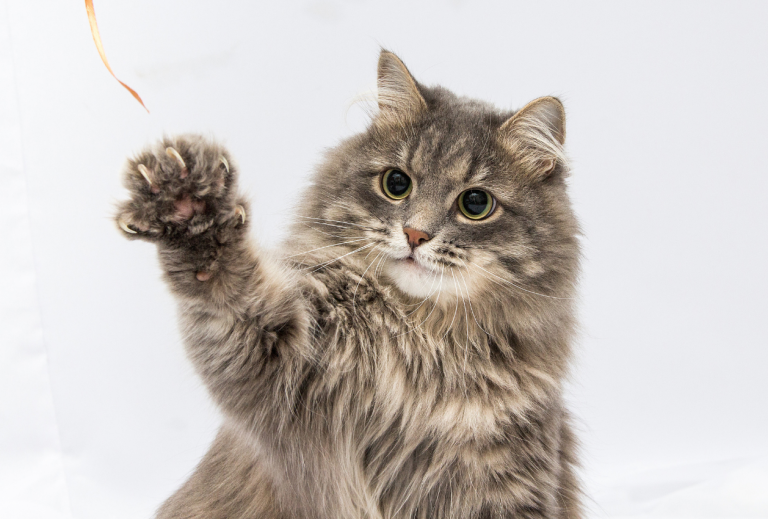Congratulations! Adopting a kitten or cat is a wonderfully exciting experience but there is a lot to learn! Don’t feel overwhelmed though! Here at Melton Family Vets, we have put together some important tips to make sure you and your new feline friend start off right.

All Victorian councils require kittens over three months to be registered. Check your local council website for details. Your cat will also need to be microchipped. Melton Family Vets can take of this for you on your first visit. Don’t forget to update your details on the Central Animal Registry if you change address.
Your cat will need a cosy bed in a quiet area so they can get used to their new surroundings. Start how you mean to go on – cats that spend the night in your bed “just at the beginning” will likely become a permanent resident!
If you have other pets, try to introduce them to each other in neutral areas and not near sleeping or eating zones. During the initial phase, feed pets separately.
Find out what food your cat has been used to and start with something similar to begin with. Make changes gradually over time so as not to upset their stomachs. Cats are carnivores with specific protein requirements, so we recommend choosing a good quality cat food which is suitable to their age and contains all the vital nutrients for healthy growth.
Ensure they have clean, fresh drinking water at all times. Avoid giving cats milk as this can cause diarrhoea.

Never scold or hit a kitten who goes in the wrong place. The key to effective toilet training is rewarding your kitten for good behaviour, and not punishing them for doing the wrong thing. Cats will have individual preferences for litter tray and litter – so if you find you are having problems training your kitten try switching up the litter type (crystals versus shredded paper) or box (with or without hood etc).
If you have more than one cat, the general rule of thumb is one litter box per cat plus one extra. Keep trays clean by scooping solid waste out twice daily and swapping the litter over once a week.
Roundworm is a common problem in young kittens. New kittens should be wormed every two weeks until they are three months old, then once a month until they are 6 months. Cats should continue to be wormed every 3 months for the rest of their lives.
For flea treatments we recommend speaking to your vet before selecting an insecticide as cats are extremely sensitive. Never use flea treatment products which were intended for dogs as these can be highly toxic to cats. When adopting your kitten, check to see if they have received a flea treatment in the last month.
Victorian legislation requires all pet cats to be desexed and this must be done prior to registering your cat with the local council. We recommend having your cat desexed before the age of six months. Both male & female desexing operations are performed under general anaesthetic.
At Melton Family Vets we are passionate about preventative care as this can greatly improve the quality of life for your new kitty. Preventative health measures for kittens include parasite control and vaccinations. For older cats we might suggest urine or blood screening to catch any problems before they become serious. Early detection is the key to successful treatment.
There are three diseases we recommend vaccinating your cat against:
If you adopt your cat as a kitten, you can get them used to daily teeth brushing, however this might not be tolerated in older cats. Chew foods such as ‘Greenies’ can help reduce tartar and freshen the breath. You can also feed your cat a speciality dry food such as Hills T/D which has been designed to improve dental health.
Cats often groom each other (and sometimes even their owners) as a sign of trust and happiness. So this can be an activity to strengthen your relationship with your cat. Long haired cats should be brushed every day – start as soon as you bring your new cat home. Cats also need a surface to sharpen their nails – unless you want this to be your couch, we recommend getting a scratching post and guiding them how to use it! Clipping your cats’ nails to blunt them is easy – ask our friendly vets to show you how.

An indoor cat is much safer and at less risk of being involved in an accident, whether from road traffic or fights with other cats. But if your cat is going to live indoors, they will need a stimulating environment. Scratching posts, climbing frames, food puzzles and toys are all great ways to keep your cat’s mind stimulated.
If your cat is going to spend time outdoors it is critical to give them monthly flea treatments and worming treatments every three months at least. We also recommend only letting your cat out from morning until late afternoon. Dawn and dusk are when most accidents occur so try to keep your cat inside at these times. Be mindful of native wildlife too – cats can pose a serious risk to native birds and possums – so make sure your cat has a bell to warn wildlife. A collar with your contact details is also advised.
Make sure you have a carrier for your cat to keep them safe during car trips. Line the carrier with a blanket from home and place a towel over the top of the carrier to help your kitten feel safe. You can also try a synthetic pheromone treatment such as Feliway if your cat finds car journeys stressful.
© 2020 All rights reserved